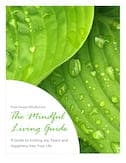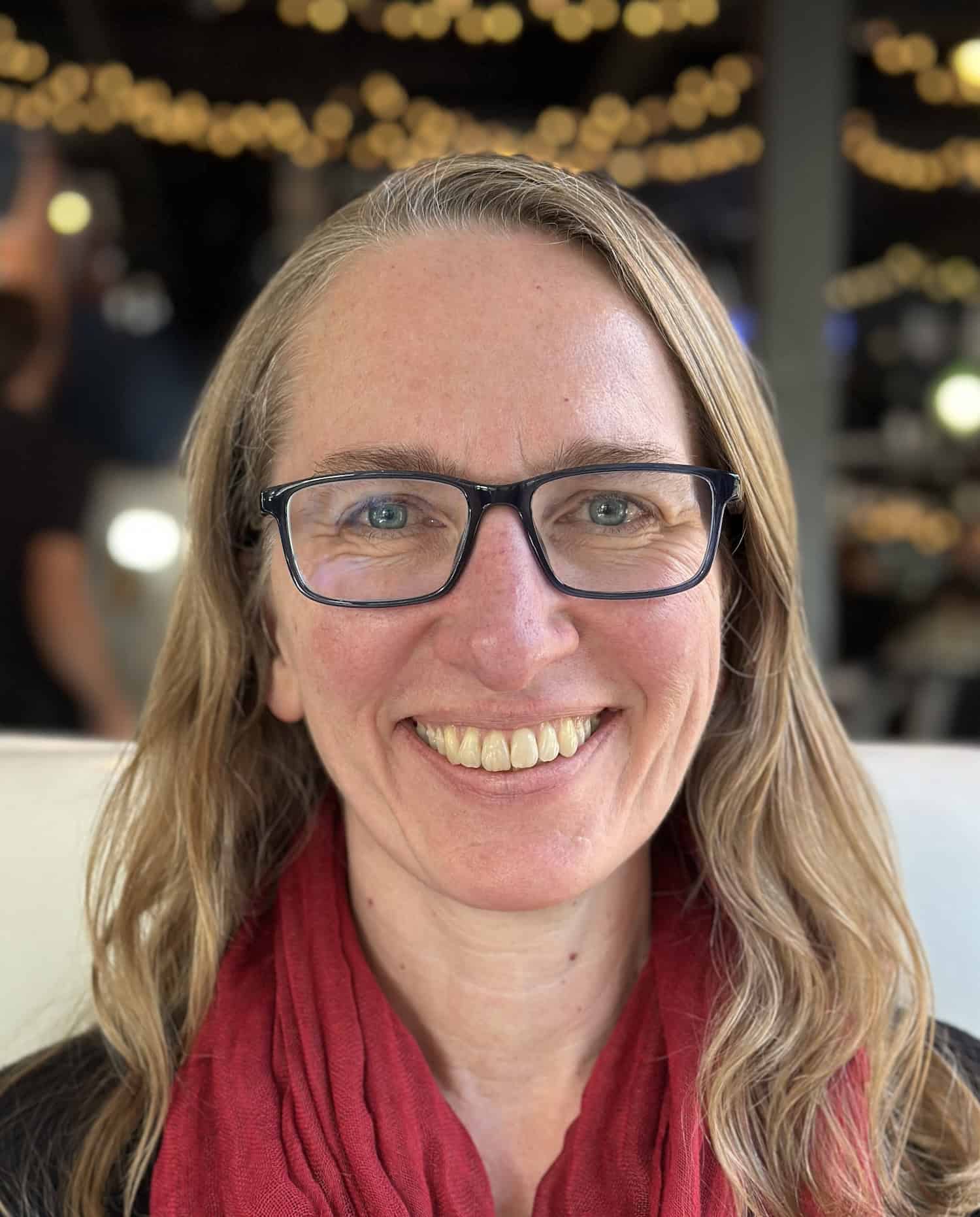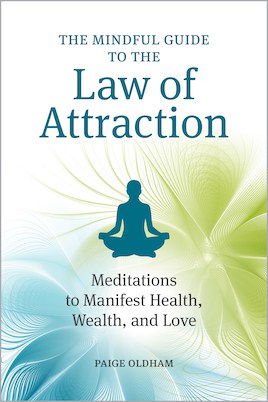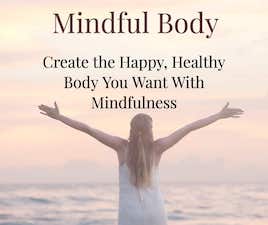Do you feel like you’ve lost touch with yourself, like you’re stuck in a funk? Like you’re going through the motions, getting things done but wondering who is getting things done?
Is life going by so fast that you feel like you’re only skimming the surface, never having the time to delve deeper to truly investigate or understand?
I know how you feel. As last month began, I felt like a machine working too much, feeling and simply being far too little. Knowing this wouldn’t magically fix itself, I took a couple weeks off from work to slow down and connect with myself again.
As I reflected on the past year, I realized how my busyness was preventing me from accomplishing anything of true importance. It was burning me out, sucking my energy and moving me further from my heart’s desires.
I looked back at the goals I set for myself last year and realized that I hadn’t accomplished any of them. Very disheartening. Then I asked myself why.
The answer to my problems? Daily habits.
“How you do one thing is how you do everything.”
The People Pleaser
Over the past couple years, I’ve tried the time management tool of scheduling everything I want to accomplish in a day (taking breaks, exercising, journaling, meditation, writing, etc.) in addition to the meetings and phone calls for my job and to-do’s for other people.
I’ve noticed that I will do everything on the schedule for other people, regardless of how tired I am, while consistently blowing off the things I’ve scheduled for myself. Result: Burned out and unfulfilled.
I recently read Gretchen Rubin’s book, Better Than Before, which has helped me to understand this phenomenon. In the book, she has four categories for us: the Upholder (meets internal and external expectations), the Questioner (meets internal expectations but questions external ones), the Obliger (meets external expectations but resists internal ones) and the Rebel (resists both internal and external expectations).
Each type utilizes different approaches for sticking with new habits. She explains why one size does not fit all when it comes to creating and maintaining habits.
I’m an Obliger. I’ll go out of my way to get things done for everyone around me (a people pleaser) while rarely taking the time to do things that are beneficial for me.
The key for turning this around is creating methods of accountability that will work for me. I’m still working on that one since I’ve been consistently challenged to find ways for others to hold me accountable for things that are only important to me. I’d love to hear your ideas in this area!
Now I’m thinking: How can I use my natural instinct to meet outer expectations to serve my inner desires? How can I use people pleasing to drive my practices and daily habits (yoga, journaling, meditation, writing, growing the community here)? How can I alter my daily habits to serve my goals and dreams? How can I change how I do one thing so it spills into everything else in my life?
Many people have discovered how regular exercise improves their energy, gets them in better shape, motivates them to eat healthier, improves self-confidence and self-esteem which boosts their performance in all other areas of their life. Yoga is like that for me. My mental, emotional and physical sides all feel when it’s been too long since my last session (three days is about as long as I can go without beginning to feel out of sorts).
Reconnecting with Your True Self
Yoga reconnects me with my body which is where emotions are stored. Despite practicing the almost identical series of poses regularly for about fifteen years, every session is new and different. Some days I feel strong and flexible. Other days everything hurts, and I have to be more gentle with myself. Some days that tweak in my lower back that I’ve had off and on since I was fifteen wakes up to speak to me.
When I listen to my body and ask what it needs, the answer from my True Self isn’t about what poses to do. The answers are usually about what I need to address the deeper emotions. And the whispers from the True Self are always right.
Your True Self is the best teacher you’ll ever have.
 As I’ve been pondering all this ‘inner work,’ I was gifted a copy of Brian Leaf’s new book, The Teacher Appears (funny how the Universe works). I reviewed his hilarious book, Misadventures of a Garden State Yogi, and was eager to read more from Brian.
As I’ve been pondering all this ‘inner work,’ I was gifted a copy of Brian Leaf’s new book, The Teacher Appears (funny how the Universe works). I reviewed his hilarious book, Misadventures of a Garden State Yogi, and was eager to read more from Brian.
Although the subtitle is ‘108 Prompts to Power Your Yoga Practice,’ it’s less about yoga and more about reconnecting with your True Self (although the yogis out there will certainly appreciate the many ideas for deepening your practice).
In addition to his own ideas for seeing the world a little differently, the book includes contributions from many of the big names in personal development and yoga.
Here are a few examples:
Ask yourself: In this moment, what is lacking? What is keeping me from feeling completely at ease? Explore. Look within. The answer might surprise you. ~Rachel Brathen
No lies today. See how it feels. Rip this page out and tuck it in your pocket so you’ll remember. ~Brian Leaf
Look up at the sky. Notice the colors, the clouds, the quality of the light, perhaps the leaves and buildings against the sky. Really look. In the space below, describe what you see – in words or images. ~Gretchen Rubin
The erroneous belief that genuine happiness comes only from pleasant feelings can become a strong motivation to stay closed to anything unpleasant. But by staying closed to all unpleasantness, we also stay closed to our own wellspring of compassion. Can you mindfully open today to one unpleasantness that you typically avoid? ~Joseph Goldstein
The harder you are on anything, the faster you wear it out. Be gentle. ~Brian Kest
Just for today, no complaining about anything. Speak only gratitude. Keep this book with you so you’ll remember. ~Brian Leaf
My plan is to create a new habit of picking up this book and implementing whatever it says on the page I serendipitously open to and being open to whatever happens. No ‘re-do’s’ if I don’t like what it says. Like my yoga practice, this exercise can reveal much to me about what I’m not seeing in myself. It also helps to get me out of my funk by getting me out of my comfort zone and trying new things.
Mindful Time Management
I’m also setting a strong intention to be more mindful of the choices I make in each moment regarding how I spend my time.
We all have the same 168 hours each week. How consciously do you choose how to spend each one of those?
I tend to start each day with the best of intentions until life happens and things don’t go quite as planned (almost every day). I’ll get wrapped up in doing lots of things that allow me to check off all the to-do’s on the sticky notes on my desk without stepping back to consider how all that stuff relates to what’s really important. I’ve noticed this subconscious need/addiction to check things off lists and delete completed emails (which both create a big dopamine rush).
This tells me that I’m not being discerning enough (mindful enough) to notice whether those things I’m crossing off are for my greater good.
It’s time to use my powers of mindfulness on my time management the same way I’ve done with what I eat.
Years ago, I loved bread and pasta and ate both almost every day. I wanted to lose some weight but was unsuccessful with almost every diet I tried. Then I went on a very low carb diet (back when they were new) which eliminated all my beloved breads and pastas.
Losing weight was more important to me at that point than eating those foods, so they were completely off my list. Cheating wasn’t an option.
After eating like this for a few months and losing the weight, I found myself in a restaurant that offered that delicious basket of freshly baked homemade bread. I thought, “That’s looks and smells amazing! I’m no longer on a diet so one piece wouldn’t hurt.” And I ate some.
While it tasted amazing while I was eating it, the joy was fleeting. By the end of the meal, that piece of bread felt like a lead weight in my gut. That did it! I never wanted to eat bread again if that’s how it made me feel.
I rewired my brain to recreate that awful feeling in my gut every time I looked at breads and pastas. With this rewiring, my old desires were gone. Poof!
Now I’m examining how I can reprogram my brain to change how I make decisions about how I spend my time and the habits I’m creating.
Just like the relationship of ‘bad food = feeling sick,’ I’m programming ‘unimportant use of time = lost life, ideal lifestyle pushed further away, deep sadness.’
If I prioritize my daily to-do list by whether the items add joy or sadness to my life (adding a happy face 🙂 or a sad face 🙁 next to every item), the choices are much easier. And I can feel them in my heart. They’re no longer just things to check off a list with equivalent meanings. Every moment and every choice truly matters.
What ideas do you have to get out of a funk and add more happiness to your life?
Create the life you want: Combine the law of attraction with mindfulness
The law of attraction suggests that our positive or negative thoughts bring about positive or negative experiences. My latest book, The Mindful Guide to Law of Attraction, pairs that belief with the powerful practices of mindfulness. Through intentional breathing, writing, and engaging, you’ll hone a method for manifesting health, wealth, and love―the elements of happiness.
Let the law of attraction work for you by adopting its basic steps of identifying and visualizing the things you desire. Then use 45 practical meditation techniques included in the book to achieve awareness. By concentrating your positive energy on obtaining your wants, you’ll give yourself permission to receive them.
To your happiness! ~Paige

You can find this book at Amazon, Barnes & Noble, Books-A-Million, and Indigo.






 The Mindful Living Guide
The Mindful Living Guide




I love your ideas, here Paige. Gretchen’s book sounds interesting, so I will add the book to my list to read. I always working on not getting into a rut. It helps me to keep things interesting and continuing be open to new ideas. Glad you were able to find ways to get out of your funk.
Thanks Cathy! Gretchen’s book definitely opened my eyes and helped me to understand why so much of the “tried and true” advice on habit change simply didn’t work for me. It also helped me to understand my husband (a clear Rebel) much better. And understanding leads to more acceptance. Instead of getting aggravated when he acts a certain way, reading books like that help me to see that his rebel nature is simply the way he is with no changing it.
When I think about daily habits I also like to think about the book by Brian Tracy “Eat That Frog!” its all about doing to hardest task the task that you dont want to do right at the start of the day. if all you did was to do that task you would consider the day as a success.
I remember watching a video of the “Eat the Frog” concept. I’ve always favored that approach but found it very hard to follow. I’m enjoying Michael Hyatt’s approach (and being more productive as a result) where you start with something easy and work up to the hard thing. It’s not procrastinating (or maybe it is a little), but it helps me to ease into doing that difficult thing.
I’m finally learning to use my natural tendencies instead of fighting them. I’ve tried for years to do that one difficult thing (or anything) before checking email, but it never works. Now I simply limit my time in email first thing, but I satisfy the urge so I can move onto other things.
Thanks Dani!
Paige – I am going to check out Michael Hyatt’s approach today : ) Let’s see how it works for me.
Stil,l I am a very big Brian Tracy he is one of the guys who got me into sales and self development.
I love this post Paige! It made me nod in agreement with all you shared.
For me personally walking in nature, reading an inspiring book/passage and tickle time with my daughter are all ways to kick the funk and get back to happy 🙂
It doesn’t take a lot of effort to get out of a mid-day funk. I love your ideas, especially the tickle time! My youngest loves that!
I love this post, Paige. As I am just beginning to get busy with freelance work and adult son who moved back in, I am feeling this one! I too am a yogaholic. I have practiced 4 or 5 times. every week for years. Now I’m down to 3 – sometimes 4 when I’m lucky. I am sad to exercising on the days I don’t do yoga. I just went for a brisk 20 min walk because that’s all I could squeeze in today.
It makes me sad not to do my yoga or exercise. I will continue to make it a priority but also realize that my priorities are changing somewhat. I still manage to meditate most every day. It is SO important to me.
I love that you are using your brain to help you. That will make success so much more attainable. It’s a strong ally.
Best of luck at figuring it out to both of us!
I know how it is to miss yoga, and I’ve been missing it more than I would like too. After a couple days, my body and mind feel all knotted up. Even a little bit of focused poses helps.
Love the graphics and I have had a great laugh and saw myself on the page too. I go to my happy place the beach when I am in a funk xxx
The ocean is such a healing place! The air, sun, water, sand and the whole atmosphere envelopes you and heals. Love it!
There are truly some brilliant ideas in this post, Paige. I love how creative you are in address your own challenges. At the same time, your solutions are fabulous and simple tips that everyone can use.
I know what you mean by the feeling of being like a machine working too much. This much I reached a point when I felt like a content machine and I had to take a break. I love writing. But sometimes even the good stuff gets to much. I love these ideas for tuning into ourselves and find what our heart truly wants to happen.
Too much of anything isn’t a good thing, even the things we love. Balance is key! As well as learning to tune into your heart. Thanks so much Sandra!
Sometimes we need to detach from the roles we play in life and just be. When we allow ourselves to just be in the moment, to reconnect with ourselves, then we find happiness is already within us. Thanks for a great post!
I couldn’t agree with you more Allanah! It’s easy to get absorbed in the expectations of the roles and wear ourselves out. The True Self always knows what’s best for us in the moment.
So much of what you write makes me laugh Paige…not because it’s really funny…but because it hit the mark so often!
In fact this year my husband and I decided we were going to do one thing differently every day and report in every evening as to what we did. It doesn’t even have to be anything major…just shaking things up a little and rewiring the brain to accommodate some new habits that serve us well.
Your bread and past story remind me of giving up sugar in the middle of last year…both for health reasons and trimming some of those pounds that had crept on over the years.
Interestingly enough I tried a cookie recently. One that I used to really enjoy even though it was gluten and dairy free and I realized it was more of a concept thing than an enjoyment thing. It didn’t taste nearly as good as I remembered…so I don’t have any desire to return to eating cakes, or cookies. Talk about rewiring!
Great article. Thank you.
Love your rewiring story Elle! I grew up loving sweets but seemed to lose a taste for them when I left home for college. I’ve never enjoyed them since. So many people feel that they “can’t” make these kinds of changes. If the will (or the ‘why’) is strong enough, it’s actually quite easy.
Your project of doing something different each day is wonderful! That’s one of the best ways to nudge the edges of your comfort zone and open yourself to new opportunities.